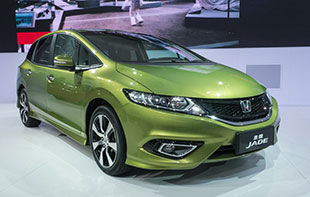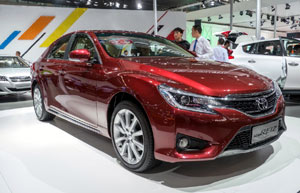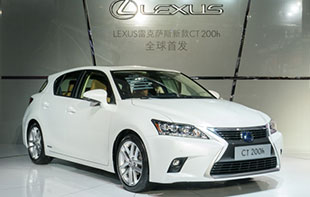

"You are seeing governments and cities think more about the future. We call that future-proofing cities," he said.
Many local governments in China are realizing that they have to think about tomorrow. Birdsong said now he thinks it is about how they will have livable cities, the places where people want to be. It is a natural part of the process that one goes through, he said.
Future-proofing a city is not just about eliminating gridlock. It is about having a sustainable city that focuses on transport, infrastructure, environment, energy and climate, the CEO said.
Nowadays in China, a project has to sustain itself. Take the Chongqing Metro as an example, said Birdsong. There is no more money to come from the government to finish it.
Therefore one has to look at how to maintain and how to run the system.
"It is now important to know how to develop projects that have the right returns, that will be self-sufficient over time," said Birdsong.
A five-minute drive away from Birdsong's Beijing office stands the CCTV building, the latest capital city's landmark, among the mushrooming of skyscrapers that now define the skyline of Chinese cities.
Birdsong does not think the pursuit of height is the answer to the future landscape of cities in the country.
"I don't think buildings should necessarily be tall. I think we should be looking at signature buildings. It does not have to be the tallest building in the world but cities need a signature building."
In San Francisco they have the Transamerica Pyramid Building. In London they have the Shard.
"You go to Chengdu and you see all those areas that have been redeveloped, such as the old tea-houses," he said.
Massive urbanization means massive opportunities for design, engineering and project management consultancy for Atkins.
"Chinese mainland business accounts for at least 45 to 50 percent of our work in the Asia-Pacific region, one of the most significant urban master planning businesses we have," he said.
The main businesses on the Chinese mainland are urban planning, architecture and sustainability in terms of smart buildings, plus sustainable buildings. Revenue in the last fiscal year that ended March 31, 2013, was 1.7 billion pounds ($2.74 billion).
Birdsong, who traveled to China for projects in the 1970s, moved to Hong Kong after his appointment.
"You have to be part of it. Just coming as a visitor does not really work. You need to be the part of the fabric. It is quite exciting," he said.
 Honda models at 2013 Guangzhou auto show
Honda models at 2013 Guangzhou auto show
 Honda Jade at the 2013 Guangzhou auto show
Honda Jade at the 2013 Guangzhou auto show
 Toyota's new Reiz debuts at 2013 Auto Guangzhou
Toyota's new Reiz debuts at 2013 Auto Guangzhou
 Jimmy Lin Zhiying, models at Toyota pavilion
Jimmy Lin Zhiying, models at Toyota pavilion
 Volvo all-new S60L world premiere at Guangzhou auto show
Volvo all-new S60L world premiere at Guangzhou auto show
 2013 Guangzhou auto show carmakers' eventers
2013 Guangzhou auto show carmakers' eventers
 Models at Volvo pavilion at 2013 Guangzhou auto show
Models at Volvo pavilion at 2013 Guangzhou auto show
 Lexus new hybrid hatch CT200h world premiere in Guangzhou
Lexus new hybrid hatch CT200h world premiere in Guangzhou